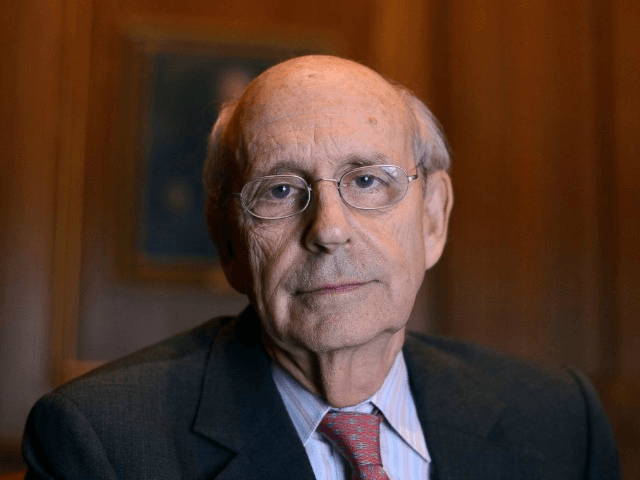During a re-broadcast interview with PBS’s Charlie Rose, Associate Supreme Court Justice Stephen Breyer said he believes the Second Amendment is a collective right rather than a “right for an individual to keep a gun next to his bed.”
Breyer’s comments came after Rose asked him to comment on the Second Amendment.
He said:
In Article One of the Constitution, it gives to the Congress the power to call up and regulate state militias. There was a lot of concern—if you read the Federalist Papers, you’ll just get a feeling for it—there was a lot of concern and fear that Congress might do that and disband them. And replace the state militias, after they had disbanded them, with a federal army.
Breyer claimed that that fear drove “many people” to urge a vote against the Constitution, believing ratification would only empower Congress to run roughshod over freedom. He then said he wanted to paraphrase James Madison, saying Madison stepped up and pledged to “put in the Constitution an amendment saying Congress can’t do that; it cannot call up and disband the state militias. Why? Because a well-armed militia is necessary for the security of a free state, i.e., a state militia, and therefore, the right to keep and bear arms shall not be infringed.” He said it was his position that the Founders were talking about a collective right, “which is not the right of an individual to keep a gun next to his bed.”
The problem with Breyer’s assessment is that he is forcing the Second Amendment into an either/or framework when it is actually a both/and statement. In other words, it is not about militias or individual rights but militias and individual rights. Federalist 46—part of the very Federalist Papers he referenced—makes this clear.
In Federalist 46, Madison stresses the importance of the militia. He talks of how the people can rally into militias to repel a tyranny from within our borders; a tyranny from our own centralized government. However, the ability to band together and repel a tyranny is predicated on individuals possessing guns. And this is why Madison wrote glowingly of “the advantage of being armed, which the Americans possess over the people of almost every other nation.”
People can band together in other nations, but without guns how much could they accomplish? What would the militias of other countries do, throw rocks and bottles?
The Second Amendment is a both/and statement. Madison recognized the importance of shielding Americans’ right to gather into militias to fight tyranny and he understood that fighting tyranny is predicated on possessing guns. Thus, it all rests on a individual right to keep and bear arms which “shall not be infringed.”
AWR Hawkins is the Second Amendment columnist for Breitbart News and host of Bullets with AWR Hawkins, a Breitbart News podcast. He is also the political analyst for Armed American Radio. Follow him on Twitter: @AWRHawkins. Reach him directly at awrhawkins@breitbart.com

COMMENTS
Please let us know if you're having issues with commenting.